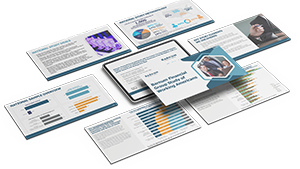
Graduation is a time of anticipation, excitement, and eventually, financial anxiety. In most cases, you’ll have an education loan to repay, an impending job search, and the potentially overwhelming aspect of being an independent adult.
This post-graduation guide is tailored to help you handle these impending post-graduation costs, overcome your loan options, create a budget, and gain financial independence.
Part 1: Understanding the Financial Landscape
It’s essential to understand your financial needs, set priorities and develop a clear and realistic plan when addressing your loan repayments. You need to understand interest rates, repayment terms, and consolidation possibilities on all your loan options.
Many graduates fall into the trap of taking debt without properly understanding the underlying responsibilities, adding to the student loan. This can spell doom to your financial well-being and future.
To avoid overreliance on loans, seek additional financial options like scholarships and grants. Because most of these education funds have deadlines, you should apply early to avoid being locked out. Also, understand the impact of such financial aid on qualification for student loans and how you can consolidate the two.
Part 2: Budgeting for the Brave New World
Evaluate your options to generate income — formal jobs, side hustles/gigs or paid internships. If you’re employed, make sure to estimate that income on a monthly basis. Be realistic and account for potential delays in full-time employment. According to the University of Washington, a fresh graduate takes 3-6 months to get a job. Keep this in mind when making your estimations.
After assessing your income options, list all the necessary expenses. The more common expenses include food, rent, utilities, and transport. Put an estimated figure under each item and list them in order of priority (needs and wants). When looking to cut these costs, consider cost-saving strategies like having a roommate, using public transport, and meal planning.
You should start early when designing a clear debt management strategy. If you have a student loan, factor the repayment into your budget and set up automatic payments. Missed deadlines could lead to penalties and fines, reducing your credit rating. If the loan allows income-based repayment, use the option because it’s more lenient when you’re unemployed.
Part 3: Navigating Financial Independence
Make a plan if and when a financial emergency occurs. It could be a car breakdown, purse/wallet stolen or a medical bill. If you’re caught unprepared, you could end up in a financial hole that takes years to fill. Financial professionals propose gradually setting aside funds to cover 3-6 months of your bills as emergency savings.
The next step is to build your credit score through responsible borrowing and the use of credit cards. Credit building is necessary because if you want to grow your wealth, borrowing is almost unavoidable. Preparedness helps you grab opportunities to invest or buy assets that generate income.
As early as you graduate, start considering long-term investments to secure your future. Most graduates take time before planning for retirement, which has left the future of many retirees in limbo. Explore robo-advisors or low-cost index funds to gradually build your wealth.
Conclusion
Graduation is not only an academic milestone; it’s a financial launchpad. With knowledge, planning, and smart choices, you can navigate your future costs, conquer debt, and chart a course toward financial independence. If you start planning early, you avoid financial mistakes that many fresh graduates make and end up in a financial crisis.
Remember, you’re not alone — use this practical guide and available resources to make informed decisions and confidently launch into your post-graduation future. You can also engage a financial professional from Barnum Financial Group to know where to start and how you can leverage the opportunity at your disposal for financial independence. Contact us today!



